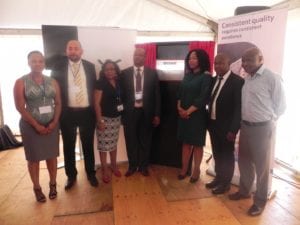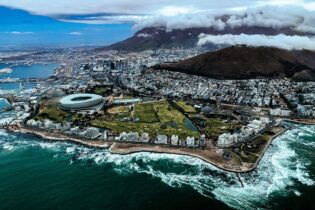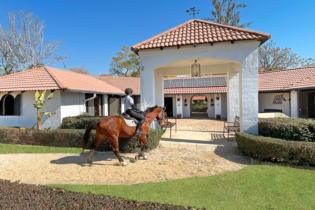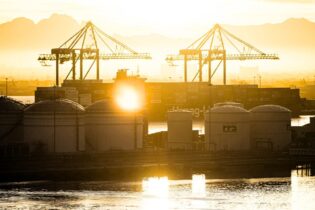
The official opening of Welgedacht wastewater treatment works’ 50 ML/d extension
“Floods have led to the loss of life here and in Johannesburg and this raises many questions regarding the municipalities’ drainage infrastructure, and their capacity to minimise the negative effect of floods. I think that together, Ekurhuleni and ERWAT have prepared an infrastructure build programme which explores how we can cater to the needs of citizens over and above providing technologically innovative wastewater treatment services,” said mayor Masina during his address.
While it took eight years and 590-million to complete a 50 megalitre per day (ML/d) extension to the Welgedacht WWTW, the results will be well worth it for the residents of Benoni, Boksburg, Springs, Bakerton and Daveyton, whom the plant serves.
The East Rand Water Care Company (ERWAT), which operates in Ekurhuleni saw the need for an extension soon after Welgedacht was originally completed in 2003. The plant’s original treatment capacity of 35ML/d. Tumelo Gopane, ERWAT’s new Managing Director, explains what prompted the decision to extend the plant: “Rapid urbanisation and industrial growth demanded additional wastewater treatment capacity to meet the needs of the surrounding communities. Further, Welgedacht discharges into the Blesbokspruit wetland. As one of 21 internationally recognised RAMSAR sites in South Africa, it was of the utmost importance that we protect this valuable green infrastructure, which is also part of our natural heritage.”
RAMSAR is an international treaty which recognises wetlands in order to promote their protection. Without wetlands, landscapes lose their natural resilience to extreme weather conditions, negatively impacting surrounding ecosystems and human life.
The reason for the plant’s long delivery time frame were the numerous environmental and hydrology impact studies carried out prior to the extension’s construction. These were done in order to ensure that the extension’s building works as well as final effluent quality met the required South African National Standards to protect Blesbokspruit – Gauteng’s only officially recognised wetland.
Construction details
Earthworks began June 2012 and construction was completed in mid-2016. “We are still in a ‘shake-down’ period at the moment, making sure all aspects of the plant run smoothly,” comments Gopane.
The area where the extension, called, ‘Module 2 Extension’ was built is dolomitic with an extremely high water table. This necessitated special precautions and foundations.
The projects also resulted in the creation of hundreds of local jobs. For example, the civil and building contractor, Group 5, trained 203 local residents with basic skills over the course of the project.
Future plans
The extension at Welgedacht is part of a much bigger plan being undertaken by the DWS through ERWAT. “According to our facilities development plan, ERWAT’s strategy tends towards regionalisation. We will be closing some smaller and under-capacitated WWRW while extending and building newer ones. This is part of our goal to provide the right sized works in the most effective geographical location affordably. By incorporating new, modern technological innovations, these new plants will be much more cost effective and resource-efficient,” says MMC for Water & Energy, Tiisetso NKetle.
She concludes saying that another 50 ML/d extension is in the works for Welgedacht, ultimately making it a 135ML/d plant. Gopane adds that it will also incorporate biogas and other beneficiation mechanisms, including the conversion of sludge to agriculturally useful compost.
Project summary:
Cost: R590-million
Client: ERWAT
Consulting engineers: Royal HaskoningDHV and Place Engineering Joint Venture
Main contractors:
- Protech Khuthele (earthworks)
- Group 5 (civil and building works)
- WEC Projects (mechanical, electrical and electronic)







